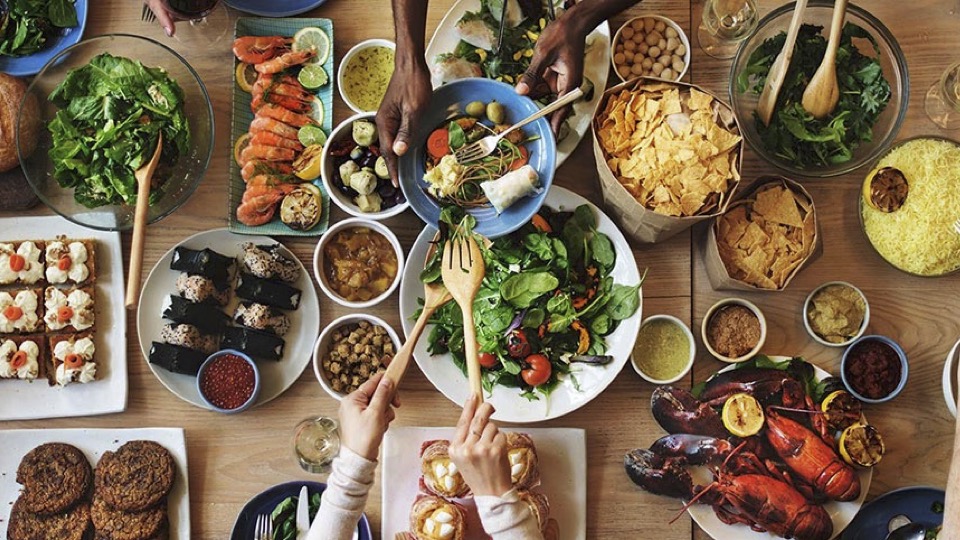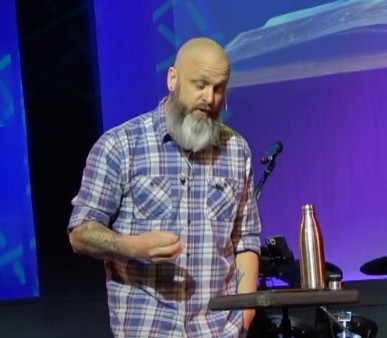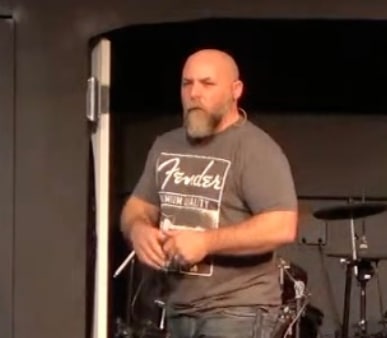Radical Inclusion
You are Welcome!
At Vox, we come from a wide range of backgrounds. Each of us brings our own unique stories, experiences, joys and struggles to our journeys of faith. What unites us at our core as a community is our belief that following Jesus is really the best way to live life – the life he showed us, taught us and died and rose again to make possible. As such, we believe that to follow in the footsteps of Jesus means that we need to choose to be a community of radical inclusion – a place where everyone has an opportunity to explore what it means to follow Jesus as his disciple.
In order to ensure that, we believe it is important that we are a safe space for those who feel like they are outsiders for any reason – race, disability, mental health issues, addictions, spectrum disorders, economic or spiritual experience, gender or sexuality – a place where each person who comes will find there is no condemnation, just grace.
We know this is a big goal because as humans we have this tendency to exclude. And we know how often we can feel uncomfortable with people who are different than us, and how frequently our response is to simply shrink in and close ourselves off from each other. But the way of Jesus is not this kind of ‘small-table’ way of thinking or being. Instead, Jesus lived a life that time and time again demonstrated this idea of making the table bigger.

What do I mean by ‘making the table bigger’?
It’s like a story someone from Vox once told:
“Years ago, we hosted Christmas dinner for our extended family of nineteen in our little tiny townhouse. They had flown in from three different continents and spanned in age from 15 months to 58, across three generations, so this was a very special occasion. Although there were children present, all of them were under two, so there was no way that they could sit somewhere on their own.
Our table barely sat six, so there was no way we could all squeeze around us. Technically, I guess we could have just told thirteen of our guests that they would have to make other arrangements for their Christmas dinner. But that honestly never crossed our minds, because it was such an incredible honour to host this meal. Instead, we begged and borrowed tables and lawn chairs from neighbours and friends. We found old sheets to use as tablecloths. We found a way of stringing the tables together between the L-shaped living room and dining room. In the end, we fit all nineteen of us around the same table.”

Our Mission: To Build A Bigger Table.
When we first wrote our mission statement, we said that as a church we existed to ‘invite others to join us as we live out our faith; to journey with us and to gather as a church after Jesus, seeking to be involved wherever he is, in our community.’ And over the years God has shown up over and over again to remind us that to do this we are going to have to get intentional about building a bigger table.
So how do we build a table like that?
We believe that to build a bigger table will require radical hospitality, total authenticity, true diversity, and honest-agenda community. The concept of a bigger table and these four concepts are based off of John Pavlovitz’s book, ‘A Bigger Table’.

Radical Hospitality.
Radical Hospitality means that everybody deserves a seat at the bigger table, regardless of who they are or how broken/disabled/challenging/disadvantaged or complicated they or anyone else thinks that they are. This seat at the table is more than just a place in the room on Sunday morning. It’s an invitation to connection. An invitation to relationship. It’s about sharing food with one another, hanging out together, laughing and crying together. It’s an invitation to help us help people move and raise money to care for our refugee family. And it’s an invitation to let us know what we can do to help make you feel safe. Ultimately, it’s an invitation to become part of a group that will in turn help make the next person feel safe.
Total Authenticity.
Total Authenticity means that nobody has to pretend to be something they’re not, just to get a seat at the table. It means that you get to show up with all of your ‘you-ness’. The includes all of your talents and gifts and abilities, whoever you are. It also includes all of your darkness and brokenness, doubts, struggles and insecurities. We are inviting all of you to join us at this bigger table.
To get to total authenticity will require vulnerability which means sometimes it will be messy. It will mean that we can’t just run away when that happens, even though that might feel easier. We might hurt each other. And then we might have to apologize to one another. Or we might need to go to others in our community for help to rebuild a broken relationship. But as hard as it might be, total authenticity will give us a space where we can experience true acceptance. A bigger table where we can be exactly as we are and practice true acceptance of others exactly as they are.
True Diversity.
True Diversity means that there is space for all of those who have traditionally been left on the outside. Whether because of race or ethnicity; disability, neuro-divergence (like ADHD and Autism), addictions or mental health issues; differences along gender or sexuality lines; differences of economics or politics or doctrine or any other experience that has left someone feeling excluded. It also means that those who have always found it easy to fit in and be part of the group and belong continue to be part of this table. More than that, true diversity makes space for the questions that don’t have answers and the questions we’re sure we know the answers for to sit side-by-side together and wrestle constructively with one another.
True diversity recognizes that we will have to become comfortable with people who are going to be different from us. That we will need to set places at this bigger table for people we don’t always agree with. Because if we only do community with people we agree with, what kind of community is that? And if we only do community with people who are just like us, how empty is that? How ‘less than’ is that? True diversity will require that we engage, dive in, ask questions, and be open. To learn something new from someone we might not feel like we have anything in common with. It will enrich our perspective and it will broaden our experience.
So often we understand ‘belonging’ as meaning ‘being the same as’. But when you’re building a bigger table that acknowledges and honours true diversity, ‘belonging’ requires each of us to reach out and include – to make space for someone else – and requires each of us to show up and choose to get connected – to take our own place at the table.
Honest-Agenda Community.
Honest-Agenda Community means that we are honest about the fact that we have an agenda. Our agenda as a church is that we want people to know and follow Jesus. We aren’t doing this because it’s cool or hip or because it’s the way we’ve always done things. Many of us have spent years deconstructing a faith that didn’t work, only to see our faith reconstructed around Jesus as we’ve tested it out in our own lives. It’s led us to think that following Jesus is a really good way to live. We know there’s no such thing as being agenda-free, but honest-agenda community makes no requirements on anyone else for what they do with this. In fact, an honest-agenda community assumes that we’ll all show up with agendas. It simply knows that the only way to build this bigger table is to be honest about that.
What About When We Fall Short?
An honest-agenda community then takes it one step further. It acknowledges that just because we want to create a radically inclusive community, that doesn’t mean we’re always going to succeed. It means that just because it is our intention to know and follow Jesus, doesn’t mean we will always get it right. It means that when we make commitments (as in our LGBTQ Commitment and our Accessibility Commitment) these are the deep desires of our hearts, but – like all of us, in all areas of life – we will sometimes (possibly often) fall (really) short of these hopes.
An honest-agenda community says that when that happens we will need to have grace-filled conversations with each other. We will need to talk about how we have fallen short. And we’ll need to talk about what we can do next time so that we get closer to the goal. But an honest-agenda community still says it’s worth putting forward our best intentions. It says that it’s worth reaching for the good that is expressed on these pages. And it invites the entire community to help us come closer to living out these hopes and desires.
That’s a lot of words, but honestly, words can only get us so far. So we hope you’ll visit us to find out more!



